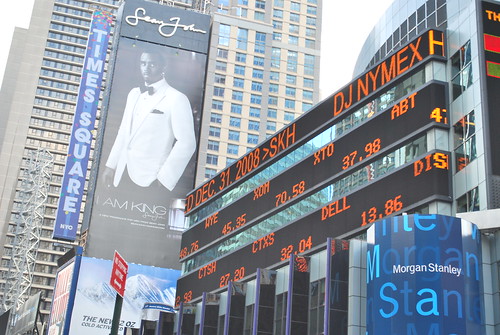
According to a recent study, Twitter might be able to predict the movement of the Dow Jones with astounding accuracy.
The research studied 9.7 million tweets back in 2008, using 2 tools for Tweet analysis:
Behavioral economics tells us that emotions can profoundly affect individual behavior and decision-making. Does this also apply to societies at large, i.e. can societies experience mood states that affect their collective decision-making? By extension is the public mood correlated or even predictive of economic indicators?
Here we investigate whether measurement of collective mood states derived from large-scale Twitter feeds are correlated to the value of the Dow Jones Industrial Average (DJIA) overtime. We analyze the text content of daily Twitter feeds by two mood tracking tools, namely OpinionFinder that measures positive vs. negative mood and Google-Profile of Mood States (GPOMS) that measures mood in terms of 6 dimensions (Calm, Alert, Sure, Vital, Kind, and Happy).
In short, they analysed a load of Tweets (from users worldwide, rather than just US-based, interestingly) and then looked at how the stockmarket performed on that day. The greatest correlation between Twitter sentiment and stockmarket movement came from the GPOMS calmness index – accurate a remarkable 87.6% of the time.
The authors of the report have no idea why this might be the case, although you might conclude that general opinion, even from those not directly associated with the markets might still result in an up or down movement in the stockmarket, something that the research alludes to, along with the need to conduct further research:
One could speculate that the general public is presently as strongly invested in the DJIA as financial experts, and that therefore their mood states will directly affect their investment decisions and thus stock market values, but this too remains an area of future research.
You can read the full research report here (PDF), but it’s a little heavy-going, so there’s more manageable analysis at ReadWriteWeb and the Huffington Post.
![]() photo credit: n0nick
photo credit: n0nick